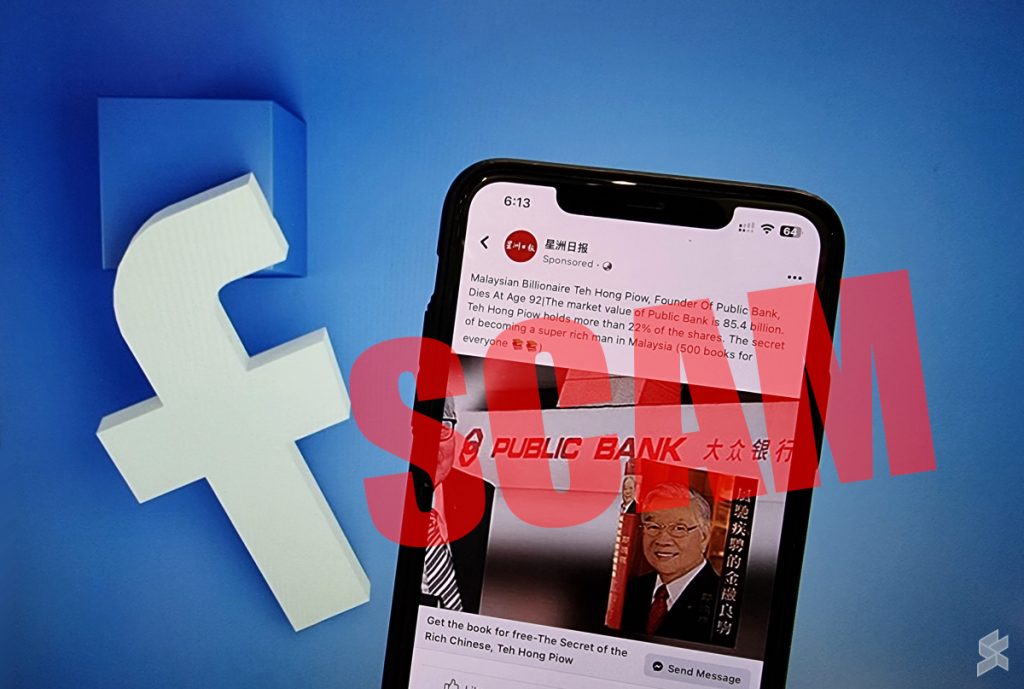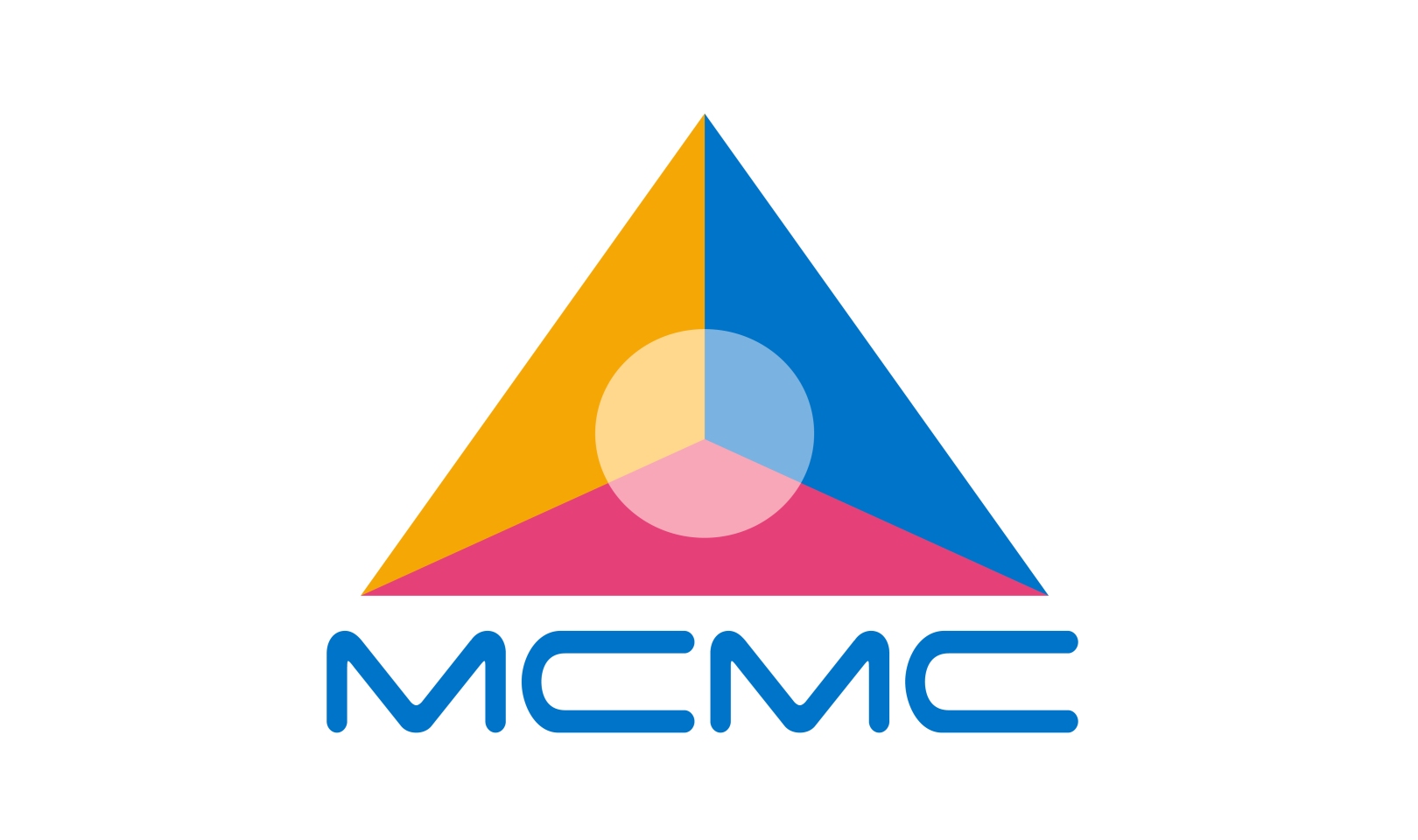The Malaysian Communications and Multimedia Commission (MCMC) said it is reviewing the current self-regulatory framework as there’s an increasing level of content that’s being exploited by criminals and those who are seeking to threaten public safety. It said that several over-the-top (OTT) applications and social media platforms have not been effective in self-regulating the use of their platforms in line with Malaysia’s laws and national interest.
With more scams on the rise especially with Facebook scam ads, the MCMC said stricter regulatory oversight and intervention by the regulator are needed to protect the public interest and users.
MCMC Chairman Tan Sri Mohamad Salim Fateh Din said, “MCMC will not tolerate the continuing and escalating abuse of online platforms and telecommunications, network or online facilities for the purposes of facilitating scams, malicious cyber activities, frauds, phishing, contents that threaten racial stability, religious harmony and showing contempt for the Rulers. We will act against those who violate the laws. MCMC, as a member of NSRC, together with the Royal Malaysia Police (PDRM), Bank Negara Malaysia (BNM)
and National Anti-Financial Crime Centre (NFCC), aims to continue our joint efforts in combating such fraud issues via such stern actions against the offenders.”

Since the inception of the National Scam Response Centre in October 2022, a total of 11,858 scam complaints have been received as of April 2023. MCMC added that losses amounting to RM1.2 billion have been recorded between 2021 to April 2023 by the Commercial Crime Department of the Royal Malaysian Police.
Upon reviewing the number of abuses and harm caused left unchecked by the platform providers, the MCMC strongly recommends regulatory oversight and intervention to curb this issue. The interventions should include imposing and enforcing obligations on those who operate such platforms and those who profit from digitalisation to take strong and verifiable measures to ensure that their platforms or networks are not used as a forum to break Malaysia’s laws or threaten the public interest.
MCMC suggests interventions to enforce obligations to digital platforms

The MCMC said industry peers and regulators in Singapore, Vietnam and Indonesia have recently or are in the process of enacting laws to regulate and criminalise fraudsters on some of these platforms and to hold accountable those platforms that fail to follow the Government’s directives by allowing malicious activities such as advertising scams on their platforms or taking insufficient steps to curb such activities. MCMC said as a regulator, they will also be reviewing the regulatory approach to enable a higher degree of oversight through the current legal instruments. This may include the review of exemptions on certain activities as well as imposing criminal sanctions and punitive orders against entities that wilfully refuse to take immediate steps to ensure criminal activities occurring on their platform are stopped.
Saya menerima tangkap layar ini sebentar tadi. Ini adalah PALSU!
— Fahmi Fadzil 🇲🇾 (@fahmi_fadzil) May 5, 2023
Saya tidak pernah mempromosi mana-mana skim pelaburan seperti ini. Saya telah laporkan pada pihak SKMM. pic.twitter.com/zm9tbK1iBZ
Last week, Communications and Digital Minister Fahmi Fadzil instructed the MCMC to find out why Meta has constantly failed to tackle the over-rising online scam ads on Facebook and Instagram. Recently Meta allowed a scam ad which misused Fahmi’s image to promote an “investment” scheme. Perlis Menteri Besar Mohd Shukri Ramli was also a victim of impersonation when a similar investment ad also used his image. He has made a police report on the matter.
Meta prioritises revenue over safety

Meta has been shrinking its responsibility to protect users from harmful ads and content. Most of these scams and inappropriate ads can be avoided if Meta conducts basic checks on new advertisers and if they form a local moderation team in Malaysia that can take action on user reports. Meta currently has an official presence in Malaysia but there have no personnel to remove inappropriate ads or content as it relies on algorithms and review teams located overseas. For a company that makes significant revenues from advertising in Malaysia, it is disturbing that they have allocated virtually zero resources to address scam ads at their local office.
In order to tackle impersonations more effectively, Meta’s founder and CEO Mark Zuckerberg wants users to pay for Meta Verified which costs about RM60 per month. When accused of trying to gain extra profit, Zuckerberg responded that they have provided protection and some support for everyone but it will cost them a significant amount of money to provide direct customer service support.
MCMC should take action now

MCMC has told us that its power to act on social media platforms is limited as the current policies are ineffective on platforms hosted overseas. While waiting for new laws to be amended, the MCMC as the regulator has the ability to use its existing powers to add pressure on Meta to take immediate action to tackle scam ads.
In 2017, the MCMC blocked the entire Steam platform after it failed to comply with the government’s 24-hour ultimatum to remove a controversial game called Fight of Gods. Eventually, the ban was lifted after Steam complied with the request. The MCMC could use the same powers to make large-scale digital platforms such as Meta establish a local moderation team and to ensure all scam reports are attended to within 24 hours.
Indonesia had also made it mandatory for all digital platforms both local and international to register as an Electronic Systems Provider (PSE) or risk being blocked in the country. By registering, the platforms must agree to comply with take-down requests within 24 hours or within 4 hours if it is an urgent request. Initially, Meta’s platforms including Facebook and Instagram were at risk of being blocked but eventually, they complied with the local regulations by the deadline.
Recently, the MCMC has instructed telcos to block SMS containing links effective 2nd May. However, it appears that scammers have adapted to the situation by switching to WhatsApp to continue with their activities. WhatsApp is also a platform under Meta.







